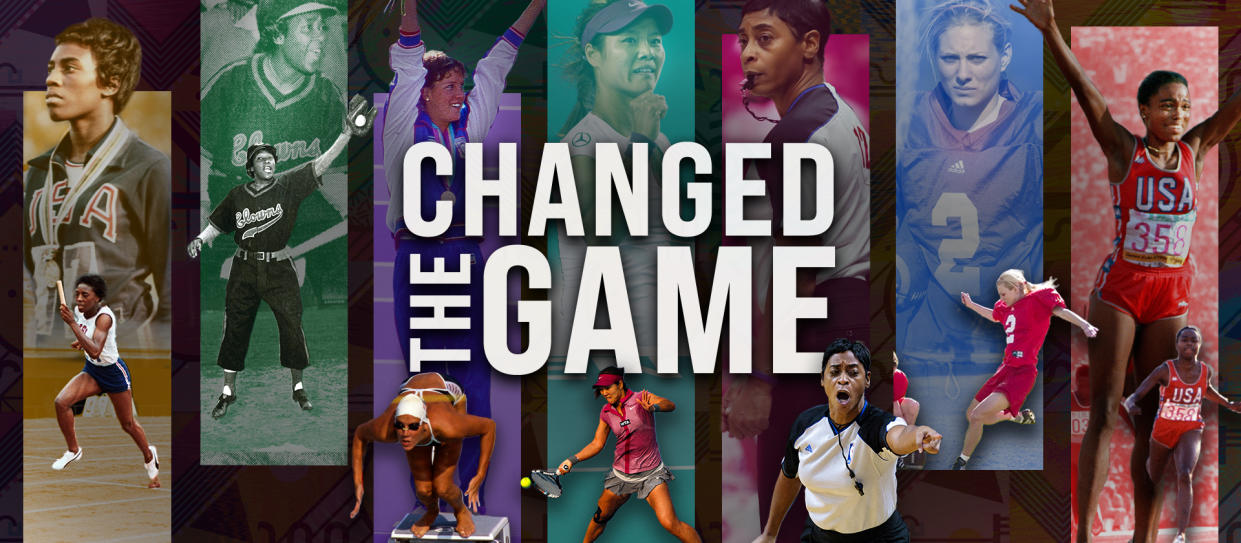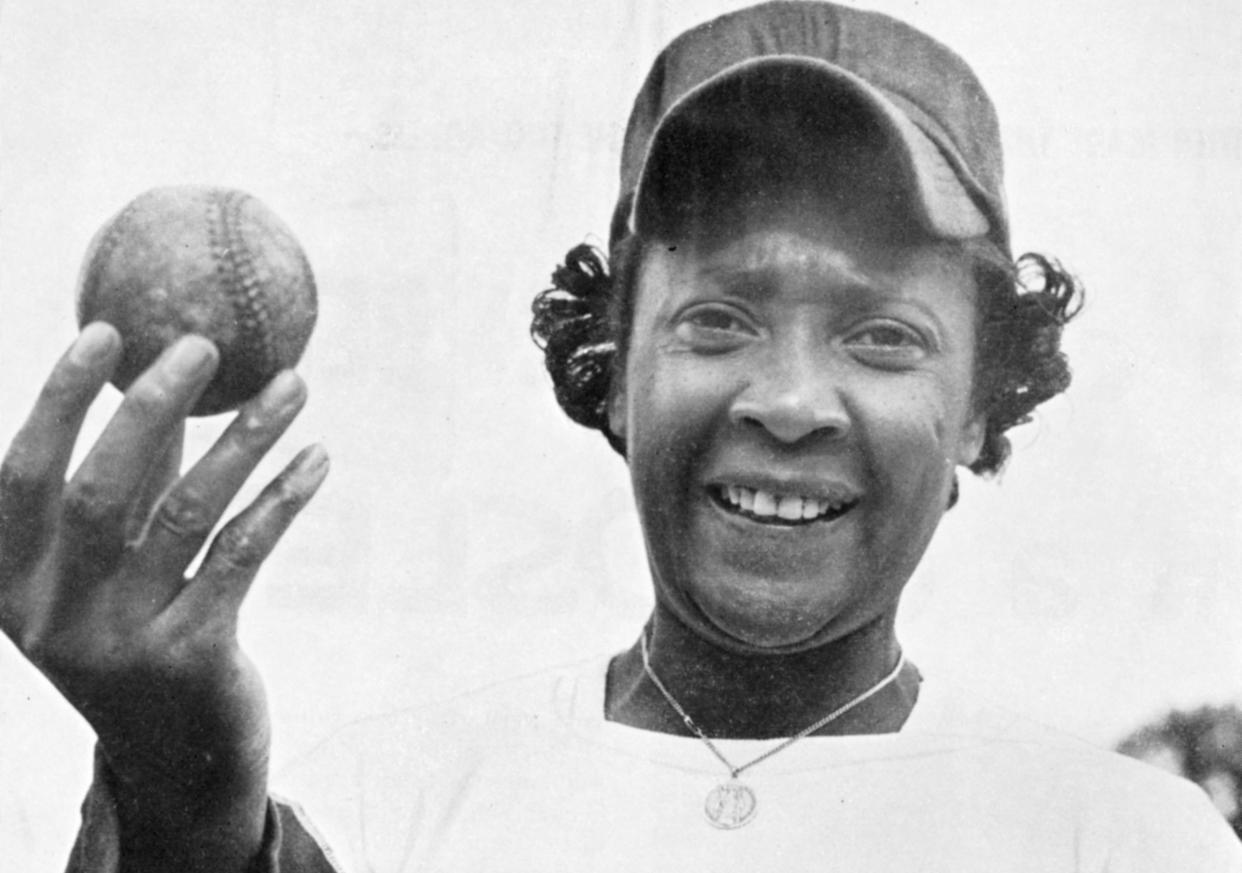Changed The Game: Toni Stone was Henry Aaron's Negro League successor who made her own baseball history

In 1952, the Boston Braves purchased the Negro League contract of Henry Aaron from the Indianapolis Clowns, a transaction that set the stage for baseball history.
Aaron would make his MLB debut with the Braves two seasons later, 23 years before he retired with the most revered record in American sports as baseball's home run king. But his call-up to MLB opened the door for another remarkable moment in baseball.
A second baseman named Toni Stone took Aaron's place on the Clowns' roster. In the process, she became the first woman to play baseball on a big-league team.
Stone's winding path to baseball history
Stone, born Marcenia Lyle Stone in West Virginia in 1921, had played baseball for most of her life — as a girl on boys teams and as a woman on various amateur, minor league and barnstorming teams in the 1940s. Not welcome in the all-white All-American Girls Professional Baseball League made famous in "A League of Their Own," Stone instead sought to break into the professional ranks among men.
She grew up in Minnesota after her family moved from West Virginia before setting out to San Francisco as an adult during World War II. There she started to go by Toni and signed on with the barnstorming San Francisco Sea Lions, an all-Black team that was briefly a member of the West Coast Negro Baseball League.
In 1949, Stone joined the New Orleans' Creoles, a minor league franchise of the Negro Southern League, where she would eventually attract the attention of Clowns owner Syd Pollock.

Hank Aaron's replacement
By 1953, Negro Leagues were fading. Jackie Robinson opened the door in 1947 for Black players to play MLB baseball, leading to an exodus of the Negro Leagues' top players. Pollock wanted a woman on his team in part as an effort to draw fans.
He signed Stone to the Clowns, which played in the Negro American League, one of seven Negro Leagues designated with major league status. She took Aaron's spot on the roster and played second base.
Pollock asked Stone to wear a skirt on the field. She refused, instead opting to wear the same uniform as the rest of her teammates. And while she drew some of the attention Pollock sought, she also proved herself on the field.
“Hank Aaron had just signed [with the Boston Braves], and Indianapolis was looking for a second baseman,” Minnesota baseball historian Frank White told the Minneapolis Star Tribune. “They thought bringing in a woman would hype up the fan base.
"Then they found out she could play. That’s a piece that gets lost, that she really was a good player.”
Stone's on-field performance
Stone developed a reputation as a tough infielder who proudly wore the scars of spikes from opponents who targeted her as they slide into second base. While complete statistics from Stone's time in the Negro Leagues aren't available, she's estimated to have hit .243 over the course of two seasons with the Clowns in 1953 and the Kansas City Monarchs a year later.
Stone didn't always have the support of even her teammates, telling the San Francisco Chronicle in 1991 that some told her to “go home and fix your husband some biscuits.” But she didn't let them deter her, just as she hadn't let the perils of Jim Crow stop her from traveling across the country to pursue her baseball dream.
Stone retired from professional baseball in 1954, but went on to play as an amateur into her sixties. Upon her 1996 death, a play in her honor titled "TomBoy Stone" was in production in St. Paul, Minnesota, where she played baseball as a child.
In 2019, an Off Broadway play aptly titled "Tone Stone" also paid tribute to the baseball pioneer.
Stone set the stage for Mamie Johnson and Connie Morgan, who joined her as the only three women to play in the Negro Leagues before they disbanded in the late 1950s. According to the Baseball Hall of Fame, no other woman played for a professional men's team again until 2016.

More from Yahoo Sports:
